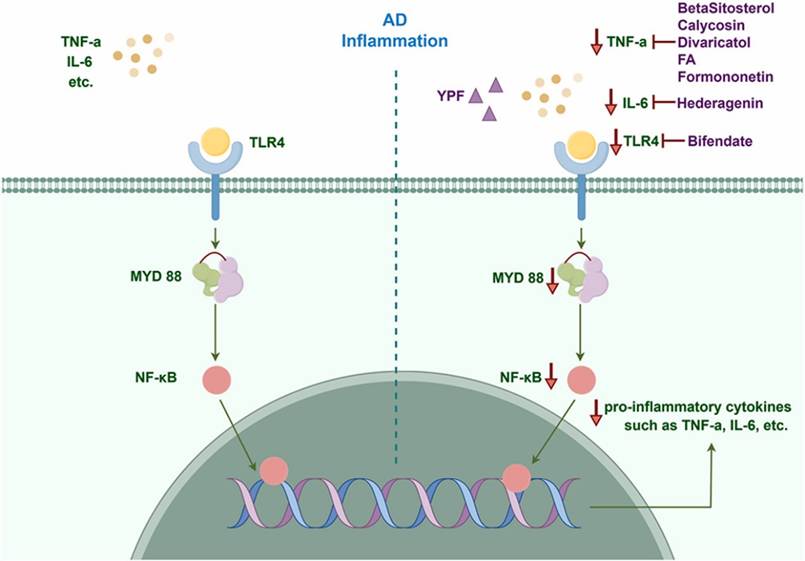- Keratinocyte Culture
- Dermal Fibroblast Culture
- Skin Immune Cell Co-culture Systems
- 3D Skin Organoid
Skin Allergies

Skin allergies, atopic dermatitis (AD) included, as well contact dermatitis result from an overactive immune system triggered by hypersensitivity to allergens and result in inflammation, barrier failure, and pruritus (itching). Protheragen develops MyD88-targeted therapies for skin allergies, modulating immune hyperactivation to restore skin barrier function and prevent chronic inflammation.
Introduction to Skin Allergies
The skin allergies develop due to an exaggerated immune reaction to a foreign body that is benign to a majority of the population. Allergens, irritants, or microbial organisms that can be colonizing the body have the ability to trigger the innate immune cells present within the skin such as keratinocytes, dermal dendritic cells, and mast cells. These have Toll-like receptors (TLRs) and their Interleukin-1 receptor (IL-1R) is a receptor that upon being stimulated by set conditions leads to the activation of a MyD88 signaling pathway.
Pathogenesis of Skin Allergies
The pathogenesis of allergies in skin begins with recognition of triggers by skin-resident cells initiating an inflammatory cascade. The exposure to allergens, microbial products or irritants, results in the activation of PRRs such as TLRs, IL-1Rs on keratinocytes, dermal dendritic cells and other skin immune cells. This activates the signaling MyD88 dependent pathway. MyD88 signaling activation results in the subsequent release of highly inflammatory mediators that fuels skin barrier function, immune cell influx, and persistent scratching. Such inflammation coupled with scratching also augments additional damage leading to chronic skin changes.
 Fig.1 Graphical abstract of YPF study. (Park et al., 2024)
Fig.1 Graphical abstract of YPF study. (Park et al., 2024)MyD88-Targeted Therapeutic Development for Skin Allergies

Direct MyD88 Signaling Blockade
New tactics modify interaction of MyD88-TIR domains to block in keratinocytes and sensory neurons to attenuate itch inducing cytokines such as IL-31 and TSLP. Topical peptide inhibitors and siRNA delivered by nanoparticles present in preclinical models suppress epidermal inflammation associated with itch while maintaining barrier functions.

Microbiome-MyD88 Axis Modulation
Recent studies have documented the improvement of eczema with the use of TLR2/9 antagonists alongside S. aureus directed probiotics to counter dysbiosis via MyD88. Meanwhile, IRAK4 degraders provided through microneedle patches also inhibit fibroblast activation, reducing chronic remodeling of skin shape and structure.
Our Services
Protheragen develops advanced disease models for skin allergies as well as MyD88-targeted therapeutic discovery. For MyD88 signaling modulator screening and evaluation against TLR/IL-1R-driven skin inflammation, barrier dysfunction, and pruritus, we integrate cutting-edge in vitro and in vivo models on skin-specific platforms.
Therapeutic Discovery Platform for Skin Allergies
Protheragen's MyD88 discovery platform for skin allergies incorporates pathway-specific modulators with skin inflammation and immune response models to address the critical role of innate immunity. The platform achieves preclinical validation of therapies aimed at disrupting MyD88-dependent cytokine networks, reducing immune cell infiltration, and improving skin barrier function.
Disease Models Development for Skin Allergies
Protheragen offers full-spectrum preclinical models of skin allergies and related inflammation, spanning cell-based models, organoid models, and animal models that recapitulate the complexity of cutaneous immune dysregulation and inflammation.


- Allergen-Induced Atopic Dermatitis Models
- Contact Dermatitis Models
- Sterile Skin Inflammation Models
- MC903/Oxazolone-Induced AD
At Protheragen, our therapeutic strategy for MyD88-driven diseases integrates disease model development, pharmacokinetics and drug safety evaluation, and investigator-initiated trials within a unified framework. By combining robust preclinical models with rigorous safety profiling and collaborative early-stage clinical studies, we accelerate the validation of MyD88-targeted therapies.
If you are interested in our services, please don't hesitate to contact us.
References
- Nie, J., et al. "Yu-Ping-Feng-San Alleviates Inflammation in Atopic Dermatitis Mice by Tlr4/Myd88/Nf-Kappab Pathway." J Ethnopharmacol 329 (2024): 118092.
- Park, G., et al. "Cera Flava Alleviates Atopic Dermatitis by Activating Skin Barrier Function Via Immune Regulation." Int J Mol Sci 22.14 (2021).
All of our services and products are intended for preclinical research use only and cannot be used to diagnose, treat or manage patients.

